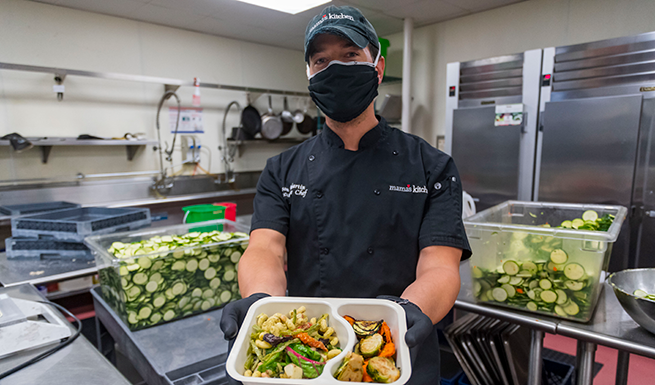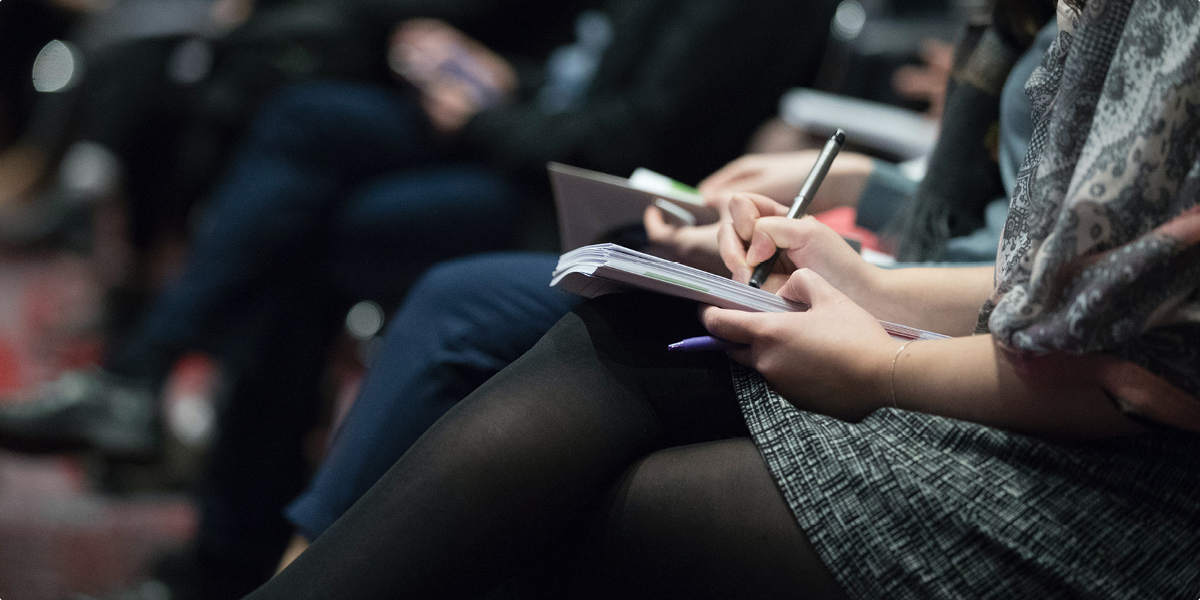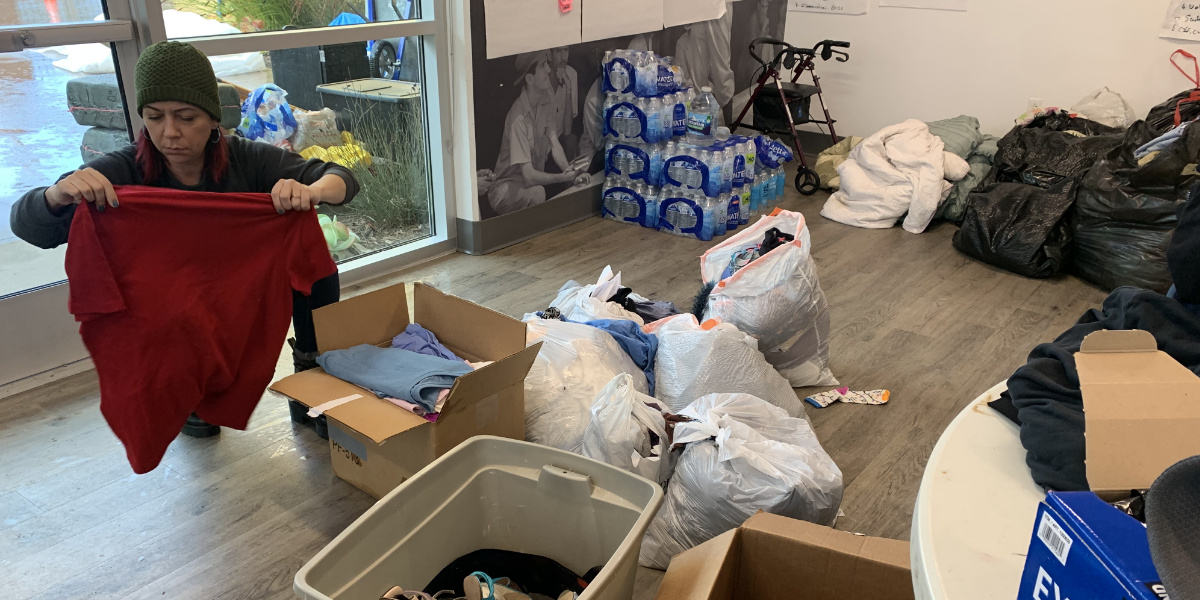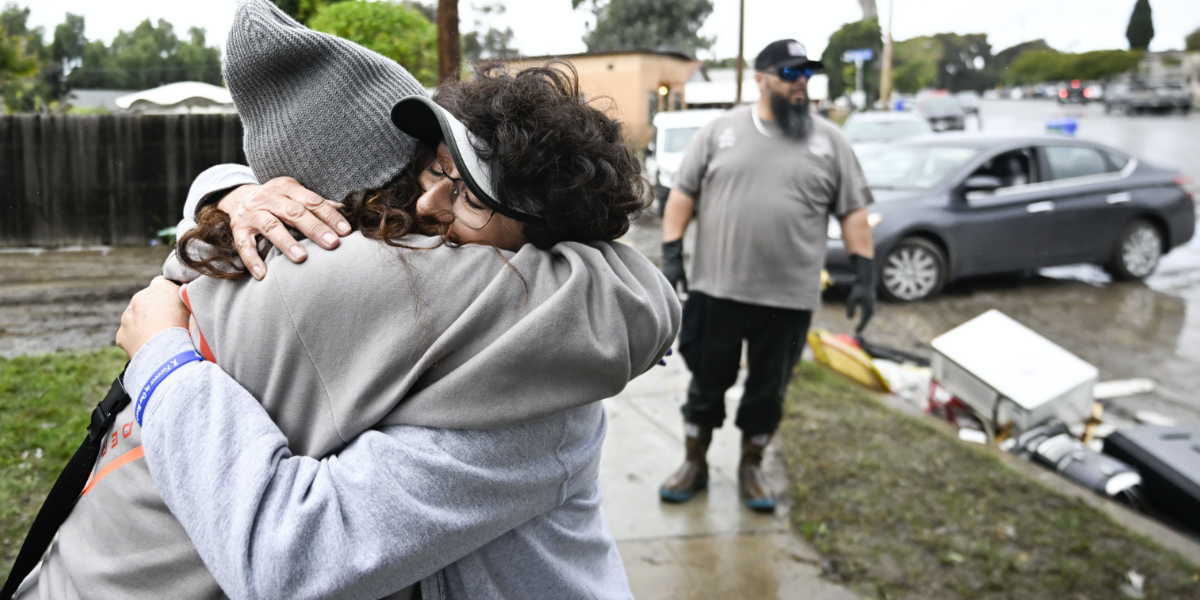Food insecurity has been a significant adverse impact of the COVID-19 crisis. But for one local nonprofit, hunger relief isn’t “one size fits all.”
“Our mission is to provide nutritious food to people living with critical illnesses,” shared Alberto Cortes, CEO at local nonprofit Mama’s Kitchen. The organization develops and delivers medically tailored meals to people navigating HIV, diabetes, congestive heart failure, chronic kidney disease and cancer.
“As an organization, we had a role to play that meant we weren’t going to have the grace or the luxury of sheltering in place,” Cortes added, emphasizing the organization’s essential service.
A $75,000 grant from the COVID-19 Community Response Fund (CRF) helped Mama’s Kitchen continue to purchase food, hire more staff to offset a decrease in volunteers, and increase its reach and services to those most vulnerable amid the pandemic.
Broader Scope of Need, Smaller Scope of Hands
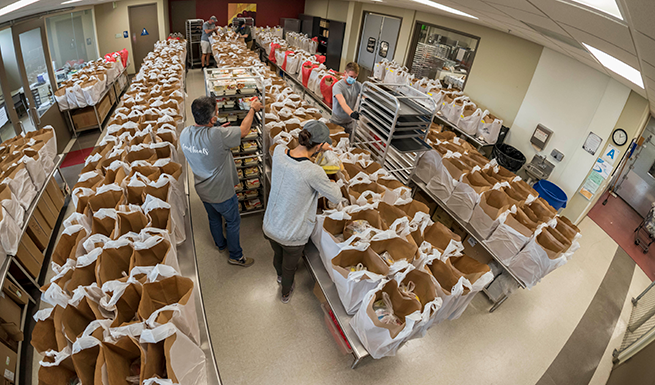
As a volunteer-driven organization, normally utilizing over 1,000 volunteers that assist with every aspect of operation, Mama’s Kitchen had to completely rethink its processes. They immediately delivered one week’s worth of shelf-stable food, in addition to their typical twice-a-week deliveries, in case of a shut down or delay due to an outbreak, food/supply procurement delays, or not enough available staff/volunteers.
When all volunteering was forced to halt, the small staff stepped up to ensure that the work continued.
“All of us were, myself included, in the kitchen scooping food; we were in the staging area bagging food, and we were putting food in our cars to deliver,” Cortes reflected.
Mama’s Kitchen had to reduce its workforce while demand increased by 63 percent. At one point, the nonprofit was serving more than 700 individuals per delivery – a stark contrast to the approximately 400 individuals served per delivery prior to COVID-19.
All meals are prepared in their kitchen, from scratch, so even menus had to be modified while still addressing the medical needs of clients, to accommodate staff that had stepped in for the volunteers that couldn’t be on-site due to COVID restrictions.
Pre-pandemic, volunteers would put in about 33,000 hours – the equivalent of 15 full-time employees.
“They’re absolutely critical to our operation,” Cortes expressed.
When vaccinations became available, Mama’s Kitchen was able to bring back volunteers who could show proof of vaccination, with significantly reduced capacity and separate volunteer cohorts.
“The reality of this virus is, even as vaccinated people, we can still become infected and we can still transmit,” Cortes emphasized, adding that they are still masking, physically distancing and taking all of the precautions they can to keep clients, volunteers and staff safe.
Beyond Hunger
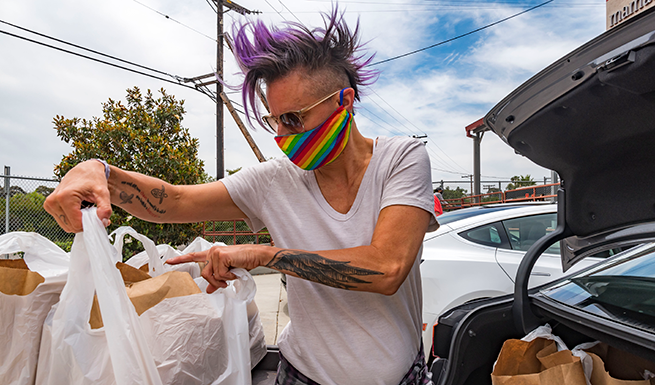
Mama’s Kitchen, even through this crisis, has never had a waitlist for clients. Despite myriad challenges, the organization continues to serve its community’s most at-risk individuals.
One client wrote this note to the Mama’s Kitchen team:
“Dear Mama’s Kitchen,
I cannot express adequately how grateful I am for your services. I honestly do not know how I would get through this cancer challenge without you. It’s a time when one can feel terribly isolated and alone, especially during this COVID scare. You have made this woman’s journey less frightening. Your delivery people are efficient and kind and don’t forget the importance of human interaction. Thank you from the bottom of my heart.”
The nonprofit now serves 500 clients per delivery but aims to be prepared.
“Our goal with our services isn’t just about hunger. We’ve moved from hunger to nutrition and from nutrition to food that actually helps people’s prognoses improve,” Cortes said of efforts to provide food as medicine and meet the holistic needs of clients.
“We are just now starting to see the long-term implications of people delaying doctor and hospital visits during the pandemic,” he emphasized.
For those with critical illnesses, disease progression can be quick. Mama’s Kitchen is building capacity for the impact these delayed visits will have on its services over the next few years. This may mean additional cooking, refrigeration and storage space, and increased volunteer recruitment.
Cortes also shared how the pandemic highlighted economic and health disparities that exist among San Diego communities. To address these more urgently, Mama’s Kitchen is moving its pantry to an area closer to public transportation, hiring a licensed clinical social worker to enroll individuals who are not currently connected with a health care system, hiring a third registered dietitian to provide more nutrition education, and making its nutrition education available in multiple languages.
“We’re setting ourselves up to be prepared for continued growth for the sake of responding to anticipated, increased community needs,” Cortes emphasized.
“We’re not going back to anything. We are moving forward.”
